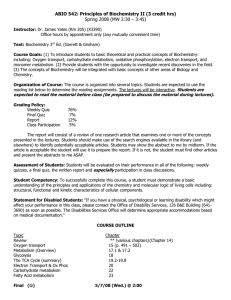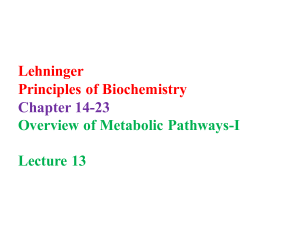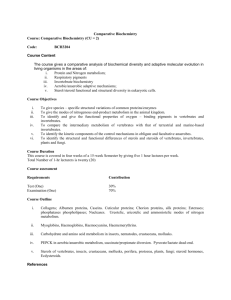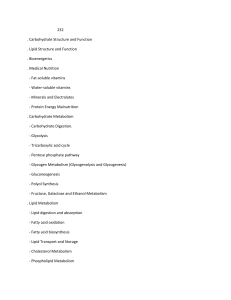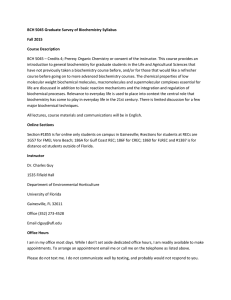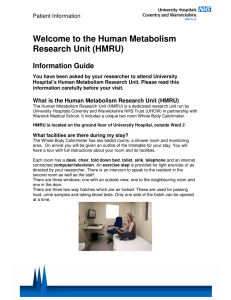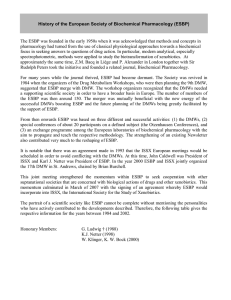ABIO 542: Principles of Biochemistry II 3 credit hrs Instructor: Text: Course Goals:
advertisement
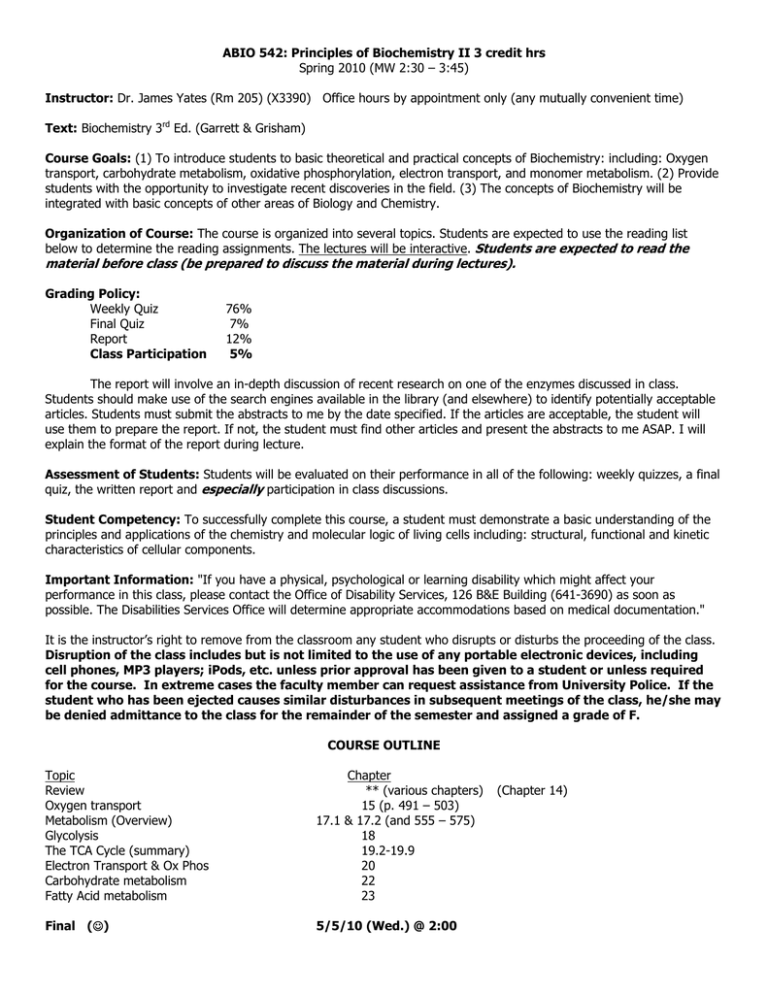
ABIO 542: Principles of Biochemistry II 3 credit hrs Spring 2010 (MW 2:30 – 3:45) Instructor: Dr. James Yates (Rm 205) (X3390) Office hours by appointment only (any mutually convenient time) Text: Biochemistry 3rd Ed. (Garrett & Grisham) Course Goals: (1) To introduce students to basic theoretical and practical concepts of Biochemistry: including: Oxygen transport, carbohydrate metabolism, oxidative phosphorylation, electron transport, and monomer metabolism. (2) Provide students with the opportunity to investigate recent discoveries in the field. (3) The concepts of Biochemistry will be integrated with basic concepts of other areas of Biology and Chemistry. Organization of Course: The course is organized into several topics. Students are expected to use the reading list below to determine the reading assignments. The lectures will be interactive. Students are expected to read the material before class (be prepared to discuss the material during lectures). Grading Policy: Weekly Quiz Final Quiz Report Class Participation 76% 7% 12% 5% The report will involve an in-depth discussion of recent research on one of the enzymes discussed in class. Students should make use of the search engines available in the library (and elsewhere) to identify potentially acceptable articles. Students must submit the abstracts to me by the date specified. If the articles are acceptable, the student will use them to prepare the report. If not, the student must find other articles and present the abstracts to me ASAP. I will explain the format of the report during lecture. Assessment of Students: Students will be evaluated on their performance in all of the following: weekly quizzes, a final quiz, the written report and especially participation in class discussions. Student Competency: To successfully complete this course, a student must demonstrate a basic understanding of the principles and applications of the chemistry and molecular logic of living cells including: structural, functional and kinetic characteristics of cellular components. Important Information: "If you have a physical, psychological or learning disability which might affect your performance in this class, please contact the Office of Disability Services, 126 B&E Building (641-3690) as soon as possible. The Disabilities Services Office will determine appropriate accommodations based on medical documentation." It is the instructor’s right to remove from the classroom any student who disrupts or disturbs the proceeding of the class. Disruption of the class includes but is not limited to the use of any portable electronic devices, including cell phones, MP3 players; iPods, etc. unless prior approval has been given to a student or unless required for the course. In extreme cases the faculty member can request assistance from University Police. If the student who has been ejected causes similar disturbances in subsequent meetings of the class, he/she may be denied admittance to the class for the remainder of the semester and assigned a grade of F. COURSE OUTLINE Topic Review Oxygen transport Metabolism (Overview) Glycolysis The TCA Cycle (summary) Electron Transport & Ox Phos Carbohydrate metabolism Fatty Acid metabolism Chapter ** (various chapters) 15 (p. 491 – 503) 17.1 & 17.2 (and 555 – 575) 18 19.2-19.9 20 22 23 Final (☺) 5/5/10 (Wed.) @ 2:00 (Chapter 14)
